Filter by
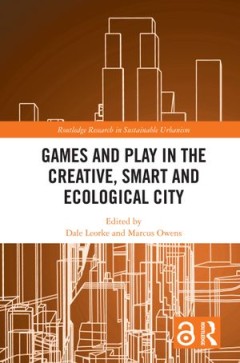
Games and Play in the Creative, Smart and Ecological City
This book explores what games and play can tell us about contemporary processes of urbanization and examines how the dynamics of gaming can help us understand the interurban competition that underpins the entrepreneurialism of the smart and creative city. Games and Play in the Creative, Smart and Ecological City is a collection of chapters written by an interdisciplinary group of scholars from …
- Edition
- -
- ISBN/ISSN
- 1000217728, 9781000217728
- Collation
- -
- Series Title
- -
- Call Number
- -
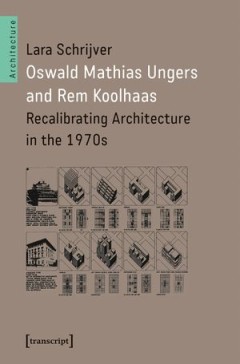
Oswald Mathias Ungers and Rem Koolhaas:Recalibrating Architecture in the 1970s
Lara Schrijver examines the work of Oswald Mathias Ungers and Rem Koolhaas as intellectual legacy of the 1970s for architecture today. Particularly in the United States, this period focused on the autonomy of architecture as a correction to the social orientation of the 1960s. Yet, these two architects pioneered a more situated autonomy, initiating an intellectual discourse on architecture that…
- Edition
- 63
- ISBN/ISSN
- 9783839457597
- Collation
- -
- Series Title
- -
- Call Number
- 720
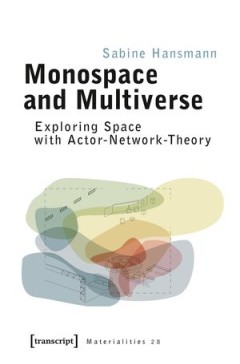
Monospace and Multiverse: Exploring Space with Actor-Network-Theory
In contrast to buildings divided by walls, monospace buildings are determined far less by its shell than by a reciprocal relationship between space and practices, objects, materials, and human bodies. Using the example of such one-room-architectures, this book explores the potential of an actor-network-theory (ANT) approach to space in the field of architecture. Sabine Hansmann focuses on the S…
- Edition
- -
- ISBN/ISSN
- 9783839455029
- Collation
- -
- Series Title
- -
- Call Number
- 720

Vienna :Still a Just City?
This book explores and debates the urban transformations that have taken place in Vienna over the past 30 years and their consequences in policy fields such as labour and housing, political and social participation and the environment. Historically, European cities have been characterised by a strong association between social cohesion, quality of life, economic ambition and a robust State. Vie…
- Edition
- -
- ISBN/ISSN
- 1000540421, 9781000540420
- Collation
- -
- Series Title
- -
- Call Number
- 720
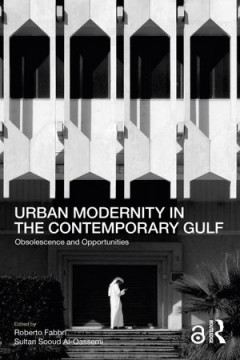
Urban Modernity in the Contemporary Gulf: Obsolescence and Opportunities
- Edition
- -
- ISBN/ISSN
- 100045553X, 9781000455533
- Collation
- -
- Series Title
- -
- Call Number
- 720
- Edition
- -
- ISBN/ISSN
- 100045553X, 9781000455533
- Collation
- -
- Series Title
- -
- Call Number
- 720
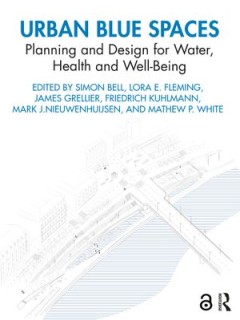
Urban Blue Spaces : Planning and Design for Water, Health and Well-Being
This book presents an evidence-based approach to landscape planning and design for urban blue spaces that maximises the benefits to human health and well-being while minimising the risks. Based on applied research and evidence from primary and secondary data sources stemming from the EU-funded BlueHealth project, the book presents nature-based solutions to promote sustainable and resilient citi…
- Edition
- -
- ISBN/ISSN
- 0429508484, 9780429508486
- Collation
- -
- Series Title
- -
- Call Number
- 720
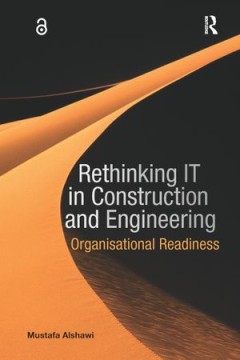
Rethinking IT in Construction and Engineering: Organisational Readiness
How could the potential of IT be realised to improve business performance in architecture, construction and engineering organisations? How could organisations unleash the potential of IT to achieve a sustainable competitive advantage? How can organisations migrate from technology to IT-enabled business thinking?Based on the author's twenty years research experience, this book provides a holisti…
- Edition
- -
- ISBN/ISSN
- 9781134085866, 1134085869
- Collation
- -
- Series Title
- -
- Call Number
- 720
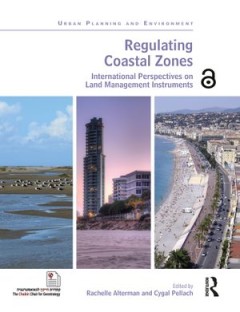
Regulating Coastal Zones:International Perspectives on Land Management Instru…
Regulating Coastal Zones addresses the knowledge gap concerning the legal and regulatory challenges of managing land in coastal zones across a broad range of political and socio-economic contexts.In recent years, coastal zone management has gained increasing attention from environmentalists, land use planners, and decision-makers across a broad spectrum of fields. Development pressures along co…
- Edition
- -
- ISBN/ISSN
- 9780429779763, 0429779763
- Collation
- -
- Series Title
- -
- Call Number
- 720
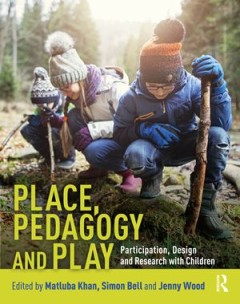
Place, Pedagogy and Play: Participation, Design and Research with Children
Place, Pedagogy and Play connects landscape architecture with education, psychology, public health and planning. Over the course of thirteen chapters it examines how design and research of places can be approached through multiple lenses – of pedagogy and play and how children, as competent social agents, are engaged in the process of designing their own spaces – and brings a global perspec…
- Edition
- -
- ISBN/ISSN
- 9780429659881, 0429659881
- Collation
- -
- Series Title
- -
- Call Number
- 720
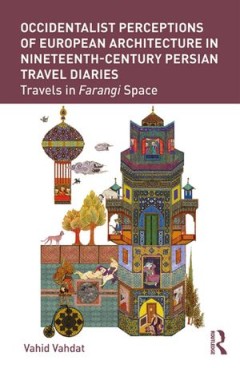
Occidentalist Perceptions of European Architecture in Nineteenth-Century Pers…
In the midst of Europe’s nineteenth-century industrial revolution, four men embarked on separate journeys to the wondrous Farangestan – a land of fascinating objects, mysterious technologies, heavenly women, and magical spaces. Determined to learn the secret of Farangestan’s advancements, the travelers kept detailed records of their observations. These diaries mapped an aspirational path …
- Edition
- 1
- ISBN/ISSN
- 1134759312, 9781134759316
- Collation
- -
- Series Title
- -
- Call Number
- 720
 Computer Science, Information & General Works
Computer Science, Information & General Works  Philosophy & Psychology
Philosophy & Psychology  Religion
Religion  Social Sciences
Social Sciences  Language
Language  Pure Science
Pure Science  Applied Sciences
Applied Sciences  Art & Recreation
Art & Recreation  Literature
Literature  History & Geography
History & Geography